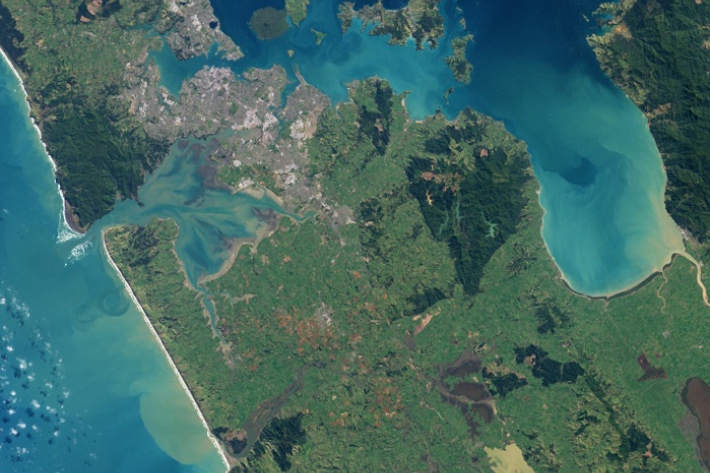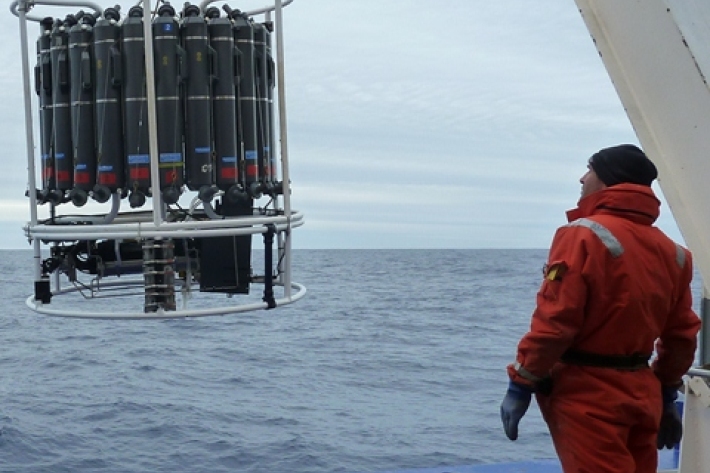-

Tracking river plumes
Research ProjectRiver plumes form one of the primary connectors between river-estuary systems and the coastal ocean. -

Oceans 20/20
Research ProjectThe Ocean Survey 20/20 (OS 20/20) programme aims to provide NZ with better knowledge of its ocean territory. -

Controlling water weeds with grass carp
Research ProjectA Ministry for Primary Industries-funded study has shown that grass carp, in enclosures, can be used as an effective means of controlling invasive plant species in our waterways. -

Coastal and oceanic dispersal modelling
Research ProjectUnderstanding how material released into the ocean spreads is very important in the case of oil spills, sediment transport and the release of invasive species. -

Surface Ocean Aerosol Production (SOAP)
Research ProjectHow do marine micro-organisms influence the earth's atmosphere and climate? -

Waikato River Independent Scoping Study (WRISS)
Research ProjectNIWA is involved in research and consultation' aimed at improving the health of our freshwater systems. -

Chemistry-climate modelling
Research ProjectThis research project focusses on modelling atmospheric chemistry and climate from the surface to the top of the stratosphere, using sophisticated chemistry-climate models. -

Submarine faulting beneath Pegasus Bay
Research ProjectIn September 2010 and February 2011, two devastating earthquakes (M7.1 and M6.3 respectively) hit the Canterbury region -

Lake Brunner water quality
Research ProjectA project funded by West Coast Regional Council has increased our knowledge of the role of phosphorus in determining water quality in Lake Brunner. -

20 years of fish surveys
Research ProjectThe main aim of the surveys is to estimate the abundance of hoki and other commercially important species (such as hake and ling), but during the 20 consecutive surveys NIWA scientists have also been able to study other aspects of deepwater biodiversity on the Chatham Rise, including fish distribution, abundance, and ecology. -

Marine food webs
Research ProjectWe need information on the food web structures of our marine ecosystems in order to manage the effects on the ecosystem of fishing, aquaculture and mining, as well as understanding the potential impacts of climate variability and change on our oceans. -

Lake Rotorua sediment-capping trial
Research ProjectMany New Zealand lakes are suffering from nutrient enrichment, causing potentially toxic blooms of blue-green algae. NIWA is testing a range of methods to manage phosphorus release from lake sediments – including sediment-capping agents.
